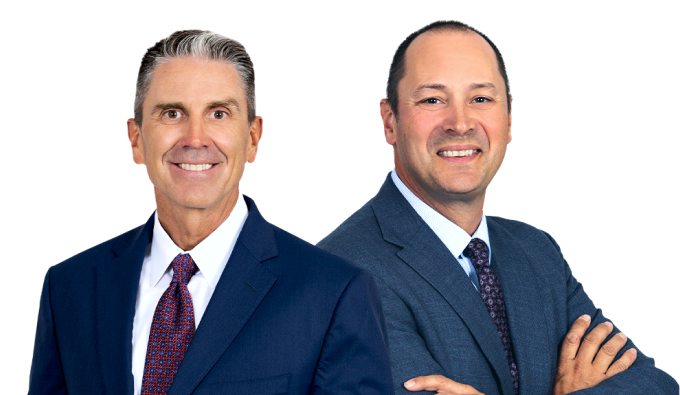
Las Vegas Personal Injury Lawyer
Dedicated Car Accident Lawyer in Las Vegas
People often hear the term “Personal Injury” andLas Vegas, Nevada Personal Injury Lawyers immediately think exclusively of car accidents. However, personal injury includes a wide range of case types in which individuals sustain personal injuries. The following is a brief overview of the major categories of personal injury cases.
You might injure yourself in a slip and fall accident at a Las Vegas casino, or you or your child could be injured in a car accident. There are countless ways you or a loved one can sustain a severe injury by someone’s negligence without warning.
Types of Personal Injury Cases Our Experienced Las Vegas Attorneys Handle
Some of the most serious personal injury cases our attorneys handle at Jones Wilson include:
Motor Vehicle Accidents
You could be eligible for compensation in one of the following situations:
Rear-End Collision: You are struck from the rear, or really any part of your vehicle, by a driver who is inattentive or impaired by a controlled substance.
Passenger Injuries: You are a passenger in a vehicle that is struck by a negligent driver or the operator of the vehicle you are traveling is negligent in its operation. You are a pedestrian struck by a vehicle that fails to yield the right-of-way or otherwise negligently operates their vehicle.
Premises Liability (Slip/Trip And Fall)
An owner of the property is not responsible for guaranteeing your safety while on their property. However, they are required to use reasonable care to ensure the premises are reasonably safe for their patrons and guests. Despite this requirement, there are different ways in which an owner or occupier of land can fall short which results in an injury to a patron or guest. The owner must have actual knowledge of the issue or constructive knowledge (they should have discovered the dangerous condition through the use of reasonable care).
These are some common conditions that cause injury to individuals while on the premises of someone else:
Foreign Substance: There is a foreign substance on the ground causing you to slip.
Dangerous Conditions: The flooring surface itself is not suitable for the conditions and creates a dangerous condition.
Non-Compliant Safety Codes: The area causing the fall does not comply with existing safety or building codes.
Known Dangerous Conditions: There is a dangerous condition that is either created by or known to the premises owner.
Owners Vicious Dog: Failure of a property owner to secure their dog which causes injury.
Premises Liability (Negligent Security)
In Clark County (Las Vegas, Henderson, North Las Vegas) there are a number of casinos and bars open later than in many other parts of the country. Nevada does not have Dram Shop laws (making the owner of property liable for the acts of patrons who they over serve with alcohol and then cause injury). This can make casinos and bars more likely to have unruly or dangerous patrons. Also, because there are a number of people carrying cash while gaming, there is a bigger possibility for criminal activity. Generally, a landowner is not responsible for the criminal acts of a third party.
However, there are circumstances when the property owner can be liable for injuries caused due to the acts of other people acting inappropriately.
Some of the circumstances include:
Calls Made To Police: There is a history of a high volume of police calls to the area which is known to the property owner.
Security Decrease: There is an unexplained decrease in security normally on the premises.
Injuries Caused By A Security Guard: Security guards get overzealous in how they interact with patrons and guests and cause injury or unlawfully detain patrons or guests.
Product Liability
Personal injuries can often occur when someone comes into contact with a dangerous product. There may be a potential claim against not only the manufacturer, but also the retailer and distributor. These claims can fall under negligence, product liability or even breach of warranty claims.
Examples of these types of claims may include:
Faulty Product: Products that fail to perform in the manner expected (i.e., defective airbags)
Unsafe Power Tools: Power tools or equipment that are deemed unsafe for use due to safety devices or improper instruction
Unsafe Products: Products that cause injury when being used in the manner prescribed.
Professional Negligence
In addition to injuries caused by negligent or intentional acts of third-parties, there are also injuries sustained due to the malfeasance or negligence of professionals. As a result, these cases require expert testimony in the field of expertise of the offending professional.
These usually take the form of medical or legal claims such as:
Low Standard of Care by Doctor: Injuries caused by doctors or other medical providers whose conduct falls below the established standard of care.
Failure To Get Consent or No Warning: Injuries are sustained by medical providers who fail to obtain the requisite consent or fail to warn of potential risks associated with a procedure.
Surgical Equipment Injures: Injuries due to surgical equipment or sponges left inside the body of the patient.
Other Professionals Can Be Held Liable: There can also be claims against lawyers, accountants or other professionals whose conduct falls below the standard of care.
The foregoing are just some of the types of personal injuries which may give rise to a legal claim. In any case, it is important to seek out the advice of an experienced lawyer to advise you regarding your potential personal injury claim. Jones Wilson Injury Lawyers are always prepared to provide a free consultation to advise you of whether you have a potential personal injury claim and your legal rights.